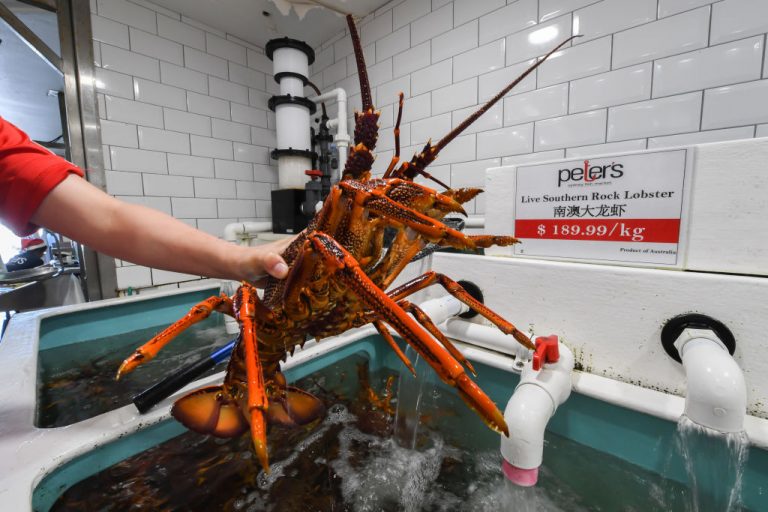As the Chinese Communist Party (CCP) continues to prioritize the red regime’s security, it has now added a crustacean to its list of “national security threats.”
The communist government has declared the smuggling of Australian rock lobster into the mainland a threat to its “national security and integrity,” Hong Kong’s customs chief said on Oct. 21, in her quest to shut down the illegal trade.
Treat or threat?
According to the Southern Rocklobster Limited, the Australian rock lobster, native only to the waters of southern Australia and New Zealand, are important for fisheries across the region.
Live rock lobster exporters based in Australia have heavily relied on the Chinese market, which accounts for up to 95 percent of exports from the country. Bloomberg reported in June that Hong Kong has become the world’s largest importer of Australian rock lobsters.
Despite lobsters being a scrumptious delicacy, imports of the crustacean in China have been restricted amidst deteriorating relations between Beijing and Canberra due to the latter’s belief that wet-markets in the Chinese city of Wuhan was the epicentre of the coronavirus outbreak, in addition to claims that the World Health Organisation (WHO) has been supporting the reopening of the wet markets.
Success
You are now signed up for our newsletter
Success
Check your email to complete sign up
Since the tensions between the two countries escalated, imports of the lobsters have increased dramatically, and it has not stopped some people on the mainland from having them on their plates.
Government up in arms
The communist-ruled government of Hong Kong has vowed to act against the illegal trade of rock lobsters on the mainland.
In her inaugural press conference, newly-appointed customs commissioner Louise Ho announced on Oct. 21 that she would “tackle anyone trading in lobsters across the border.” In her inaugural press conference, she expressed her desire to “safeguard China’s national security.”
“On the surface, it is a simple matter of smuggling lobsters, but these activities undermine our country’s trade restrictions against Australia,” she said, adding that, “Stopping lobster smuggling is a very important part of protecting national security, so we will pursue it diligently.”
Ho has also reported that triad gangs have been bringing in lobsters via speed boats to the mainland for years, a practice that surged to greater heights during the COVID-19 pandemic.
Recently, after arresting 13 suspects, around 5,300 kilogrammes of smuggled lobsters, worth US$540,000, have been confiscated by Hong Kong and mainland authorities.
In one incident, a marine officer was killed after her vessel was rammed by smugglers in a high-speed chase, causing the police to launch a crackdown, The Guardian reported.
Other than Australian rock lobsters, speedboat smugglers have also brought in everything ranging from luxury watches, handbags and shoes to endangered animal parts, cosmetics, wines, whiskey and cigars.
The move to ban and restrict the influx of rock lobsters into China has come in light of the numerous crackdowns performed by the CCP, mainly against dissent and protests in the city of Hong Kong, which prompted a national security law to suppress anyone and anything deemed a “national security threat.”














